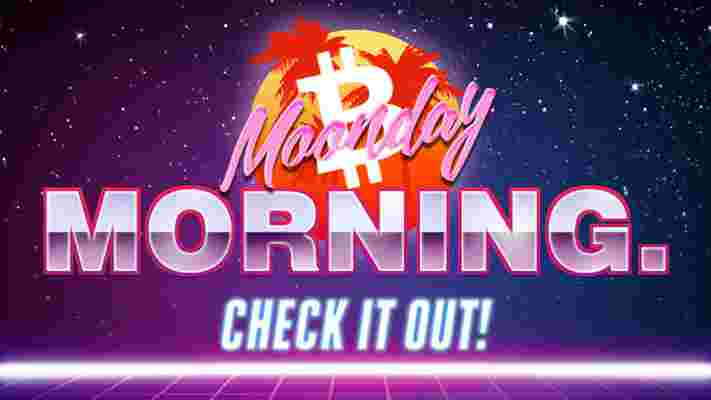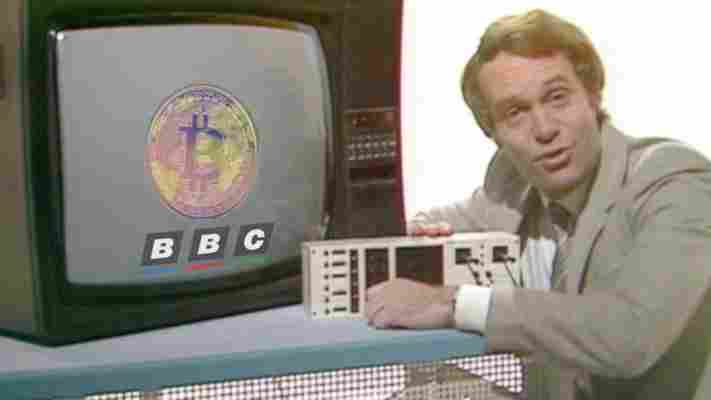Welcome back to another Moonday Morning, Hard Fork’s wrap-up of the weekend’s top cryptocurrency and blockchain headlines that you can’t afford to miss.

Let’s check it out.
1. Leaders in US congress have drafted a bill that would prevent big tech companies from offering financial products and services like cryptocurrencies and digital assets, The Block reports . The bill comes ahead of Facebook’s congressional hearing later this week. But I think we should kill Libra! Kill it any way we can!
2. Something’s up at Bitpoint, the Japanese exchange hacked for $32 million worth of cryptocurrency last week. Some reports out today/last night are stating that the exchange has located $2.3 million (250 million Yen) of the stolen cryptocurrency. However, translated reports appear to suggest the additional $2.3 million is the result of another hack. We’ll update when more is confirmed.
3. A college in New York City is the latest to fall victim to a Bitcoin-fueled ransomware attack. Monroe College was hacked last Wednesday morning, and has resulted in the college‘s systems being shutdown. The hacker(s) are demanding 170 Bitcoin ($2 million) to decrypt the school’s network, Daily News reports .
4. Chinese police have seized 4,000 Bitcoin mining machines suspected of running on stolen electricity, Xinhua Net reports . The authorities were alerted earlier this year after a local power company reported “abnormal electricity usage.” After a two-month-long investigation, a gang of 22 people that had been running nine mining farms, were arrested.
And finally…
5. An American football team – the Miami Dolphins no less – has picked Litecoin as its “Official Cryptocurrency,” whatever that means. It appears to be a sponsorship deal, with a few extras thrown in, according to an announcement from the Litecoin Foundation . One such extra will let Dolphins fans buy tickets to the team’s charity raffle using Litecoin or Bitcoin.
So long and thanks for all the Bitcoin hard forkers.
Israel shipping giant opens its blockchain after successful trial
Israel‘s largest shipping firm is opening up its blockchain to all of its clients of specific trades following a successful trial.

Shipping firm Zim took the decision to roll out its blockchain for electronic bills of lading (eBLs) following a successful trial last year, TradeWinds reports .
For those not in the shipping biz, which I think is most of us, an eBL is a manifesto of a ship’s cargo which is given to the master or captain of the vessel as part of the ship’s legal documentation.
Reports claim that original bills of lading were transferred to the captain hours before the ship’s departure. Prior to Zim‘s blockchain, the processing of eBL documents could take anywhere from a few days to a few weeks.
Zim believes that using the blockchain to digitize shipping documents will reduce time, complexity, and operating costs for everyone involved in making a container ship get from A-to-B.
It might just be me, but logistics and shipping seems to be actually making something of the blockchain. Indeed, the blockchains might be private and permissioned, but the industry seems to be developing working use cases of the technology that bring benefits for those involved.
In July 2018, an Australian bank used blockchain tech to track the shipping of 17,000 kilos of almonds half-way around the globe.
The UK’s leading port operator also began exploring blockchain as a tool to improve the efficiency of British ports last year.
Transporting large amounts of cargo around the world, somtimes involving hundreds of suppliers, and oceans of paperwork is no easy feat. If private blockchains help make the process a bit more efficient, I guess it’s okay that the platform is only decentralized in part.
BBC’s English language lesson about cryptocurrency isn’t terrible
The BBC is helping non-native English speakers sharpen up their cryptocurrency language skills and knowledge with a 6-minute primer on Bitcoin.

In today’s episode of BBC Learning English hosts Catherine and Sam discuss cryptocurrency, Bitcoin, and Facebook’s controversial digital currency Libra.
If you’re a seasoned Bitcoin boffin, don’t expect to learn anything new. This 6-minute conversation serves as nothing more than an introductory conversation to the topic for non-English speakers to listen to and get to grips with some basic terms.
The episode opens with a basic overview of cryptocurrency, where the word comes from and what it is. And poses a quick question to listeners, “When was Bitcoin created?” Listeners are kept waiting until the end of the show for the answer.
The conversation then turns to Libra. But this is a language lesson about cryptocurrency! I hear you cry.
Don’t worry though, the language hosts make a case of pointing out that Libra is not actually a cryptocurrency. Mostly because it is backed by fiat currencies, an atypical characteristic of cryptocurrencies like Bitcoin.
Back to that question, though. The host says Bitcoin was created in 2009, which depending on your outlook, isn’t necessarily true. Indeed, Bitcoin‘s genesis block was mined in 2009, so on one hand, Bitcoin‘s blockchain began in 2009. However, Bitcoin‘s creator Satoshi Nakamoto published the cryptocurrency‘s white paper in 2008, thus giving birth to the concept.
Either way, I’m probably splitting hairs, this is a quick language course using cryptocurrency as a topic, not a deep dive into the technicalities of Bitcoin.
Some might use this as another example of Bitcoin adoption, and the topic going mainstream.
If it helps some non-native English speakers learn get to grips with the technology it doesn’t matter what it is.
But let’s not forget that universities around the world have been offering educational blockchain courses aimed at creating the next generation of industry experts, for a number of years now.











